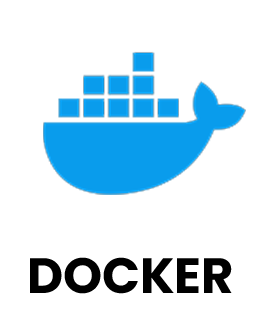Be looking to build a career on the DevOps path. Here is a brief idea of the DevOps engineer career path, which is one of the most rewarding career paths of today. We hope this article has enlightened you with the concepts of DevOps, the DevOps career path and salaries, and the various roles and responsibilities in the DevOps world. Enroll Now with us ACTE DevOps Classroom & Online Training Course.
Well if, you’re coming to career is the main thing in your life so that DevOps career requires learning to be a skilled communicator, perhaps most especially becoming a skilled listener. DevOps also calls for a willingness to push for positive change…. as well as something that brings conventionally disconnected components in the development, deployment, and delivery of software into a single loop. Organizations are finding that DevOps is replacing their traditional IT departments
DevOps assimilates development and operations teams to improve the collaboration process. A DevOps Engineer will work with IT developers to facilitate better coordination among operations, development, and testing functions by automating and streamlining the integration and deployment processes. The field of security is peculiar because the more you automated, the higher chances of automating problems too. So all automation being done in this area to be intrinsically controlled, and this brings enormous scope for DevOps philosophy. DevOps has a great and promising future.
Absolutely, No DevOps is easy if you have the pre-requisite skills (Linux fundamental ad Shell Scripting), our trainers will make it simple easy and intresting. Chef, Puppet, OpenStack, etc. are DevOps tools and those are includes everyday System Admin skills. ... DevOps is the cross-section of software engineering and systems administration. Moreover it is easy to learn
We are happy and proud to say that we have strong relationship with over 700+ small, mid-sized and MNCs. Many of these companies have openings for DevOps developer. Moreover, we have a very active placement cell that provides 100% placement assistance to our students. The cell also contributes by training students in mock interviews and discussions even after the course completion.
Both are Good and both are having their own Specialty as well as both has future. DevOps is a combination of software development and operations and as its name suggests, it's a melding of these two disciplines in order to emphasize communication, collaboration, and cohesion between the traditionally separate developer and IT operations teams.DevOps helps an organization deploy software more frequently, while maintaining service stability and gaining the speed necessary for more innovation.
DevOps brings a set of principles and values to promote collaborative development and deployment approach and it can be achieved by using certain tools and processes. Hence DevOps is neither easy nor difficult, it depends on how you perceive it.
For a minimum understanding of Devops for beginners, it requires only 10–15 hours. To get a medium level understanding of Devops will require a minimum of 40–60 hours. For high-level understanding, it requires more than 2 projects.
Yes, Of course you can. Just like a person without any IT experience can enter programming, System Administration, Quality Assurance, Hardware etc……..There is always an entry point to IT and DevOps is always special. And just like those other fields you will have a steep DevOps as a learning curve.so make use of it…..
Our courseware is designed to give a hands-on approach to the students in DevOps. The course is made up of theoretical classes that teach the basics of each module followed by high-intensity practical sessions reflecting the current challenges and needs of the industry that will demand the students’ time and commitment.
DevOps Is Quite intresting
Definitely, it's a good choice if you want to learn DevOps. Many big IT companies such as ADP, eBay, GE, ING, Intuit, PayPal, Splunk, Uber, JP Morgan are looking for DevOps experts…. DevOps is more than what your resume can effectively communicate, namely the so-called soft skills. And it and good to take devops in 2020
Yes, devOps is currently having a huge demand in IT sectors, with no signs of slowing down. According to the 2020 State of DevOps Report, organizations using DevOps practices could deploy code up to 30 times more frequently than their competitors. ... According to IT survey the average salary for a DevOps engineer is a juicy $100,000 per year.
Top to be a Better Agility, Effective and faster deployment of apps and software. ..DevOps- a perfect source for earning money and a faster business development cycle. ...Boost product quality. ...Lower IT staff and costs. ...Become a valuable asset for the company. and You will get the chance to work with professional developers
However, your qualifications, experience, and interest also matter. With the right talent and combination, there is a good chance that an experienced DevOps candidate can advance into senior technical or management roles in the future.
DevOps for your organization
Gartner defines DevOps as a business-driven approach to deliver solutions using agile methods, collaboration and automation. However, its important to define the target state in terms that your organization will understand. Picking a label for your initiative to provide a banner for people to identify with and support will help to get them on board. The definition should be short, focused and supportive of the business justification.
Select the First mover application:
Do not deploy DevOps in a single step. DevOps must be deployed iteratively, with each increment satisfying all three of the following qualities:
Politically friendly environment: This means that people are willing to work with the first-mover application and give the initiative a fair and honest try.
Acceptable value: The first mover must deliver enough value to earn credibility and approval to continue.
Acceptable risk: Because of the ambiguity and uncertainty surrounding DevOps, many people view it as risky and are afraid to begin. Organizations should identify an opportunity that involves an acceptable level of risk, because everyone IT, operations, development, information security, regulatory compliance and audit must learn.
The business benefits they hope to realize from DevOps:
DevOps challenges conventional IT thinking with its lack of a standard definition and approach, its constant evolution, and its requirement for acceptance and management of risk, says George Spafford, research director at Gartner. This imprecise target state has caused many IT organizations to hesitate in implementing a DevOps strategy.
Although there is no specific set of required stages, Spafford recommends eight foundational steps that infrastructure and operations (IO) leaders can follow to get their DevOps initiatives up and running.
DevOps Career Path: 6 Demanding Diverse Roles
- DevOps Architect.
- Release Manager.
- Security Engineer.
- Automation Engineer.
- Software Tester.
- Integration Specialist.
DevOps Architect
A DevOps architect is responsible for analyzing and executing DevOps practices within the organization or a team. He architects the overall DevOps environment bringing in all efficient DevOps methodologies as per industry standards. He brings in the right tools for automation of the processes.
He facilitates the development processes and operations. The DevOps architect also sets up a continuous build environment to speed up the software development, testing, and the production deployment process. In some organizations, a DevOps architect serves as a mentor to the team, guiding the developers and operations teams to resolve issues.
He monitors, reviews, and manages the technical operations from a leadership standpoint.
Release Manager
In a DevOps environment, a release manager is responsible for planning, scheduling, monitoring, and controlling the software development and deployment process. He develops the development team and the operations team to be in sync, enabling frequent but short feedback loops.
This ensures faster releases of the software. A release manager is responsible for defining the success and acceptance criteria for the current build of the software. He effectively uses the CI/CD pipeline and overlooks the quality standards of the builds. In DevOps culture, a release manager is more people-centric and tried to minimize the user impact. This means that in the DevOps culture a release manager plays some parts of a project manager
Security Engineer
In the DevOps, world security is popularly known as DevSecOps. The responsibilities include using different tools like log management and configuration management to ensure security throughout. DevOps emphasizes on a continuous security philosophy.
In the traditional waterfall software development lifecycle, security is mainly implemented only when the code is being released to production. But in the DevOps culture, security is a critical factor throughout the DevOps continuous cycles.
Automation Engineer
In the DevOps world, an automation engineer is responsible for developing and maintaining the CI/CD process for all the applications and their builds using tools like Maven, Jenkins, Git, Gerrit, Gradle, etc. He would be automating the configuration management across the infrastructure and platforms using configuration management tools like Ansible, Chef, Puppet, SaltStack, Fabric, etc.
He is also responsible for building and administering virtual machines and containers using tools such as Vagrant, Docker, and Kubernetes. The automation engineer also performs logging and monitoring activities using tools like Nagios, Zabbix, ELK stack, and Splunk.
Software Tester
A test engineer in the DevOps culture has to align their test design, test cases, and test automation with the DevOps framework being used. A software tester verifies that the code changes work as intended and also makes sure that the changes do not break the software product as a whole. In short, the software tester ensures that the piece of code meets the success and acceptance criteria put forth by the release manager, as discussed above.
Integration Specialist
An integration specialist works with the infrastructure operations teams and software development teams to create the integration and continuity of the code. He creates a holistic view of the working environments. He supports engineering and testing teams to meet infrastructure needs. He also provides some level of support for developed automation. The integration specialist also works with the cloud architects to implement the containers as per the requirements of the software development engineers.








































